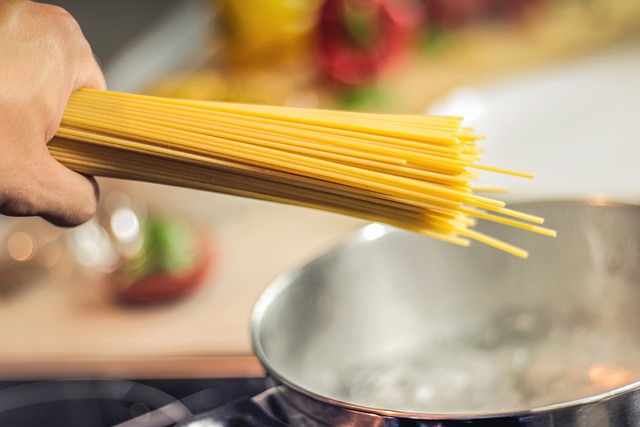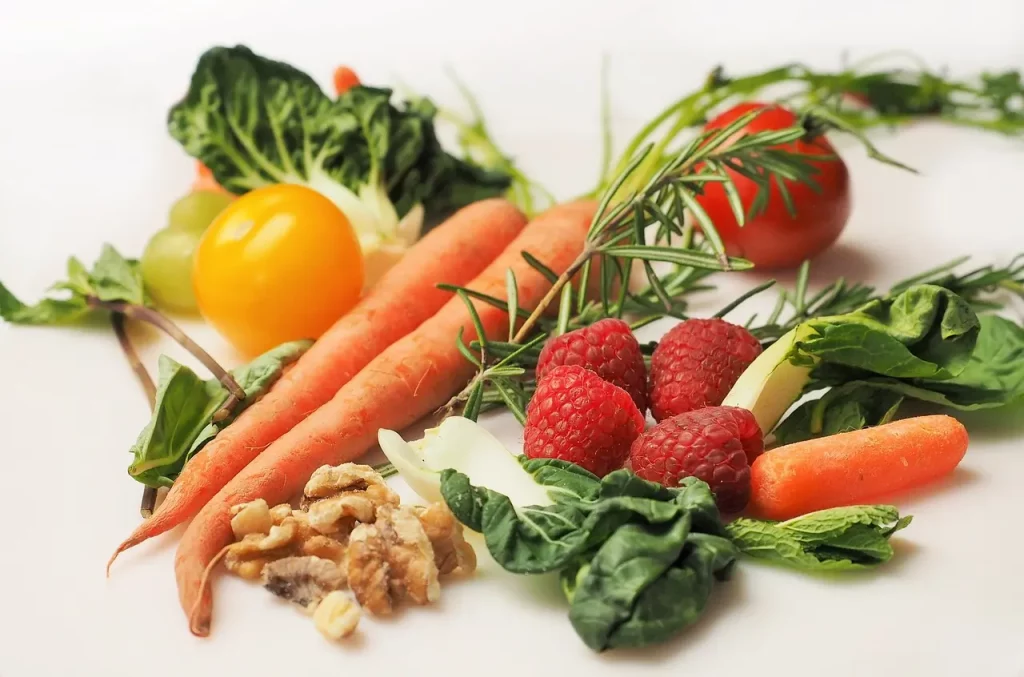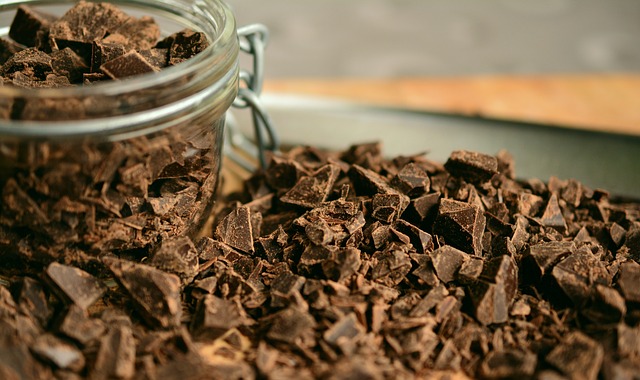Acne is a common skin condition that affects people of all ages, but it can be particularly challenging for those in their teenage years. While there are many treatments available, ranging from over-the-counter creams to prescription medications, some people prefer to take a more natural approach. One way to do this is by incorporating certain foods into your diet that can help clear up acne. In this blog post, we will explore 10 foods that have been shown to have acne-fighting properties, and how you can easily incorporate them into your meals to help improve the health and appearance of your skin.
Why Diet Matters for Acne

Foods that Can Trigger Acne Breakouts
Certain foods will definitely not help clear up acne because they cause an increase in blood sugar levels and insulin production, which in turn can lead to an increase in sebum production. Sebum is the oil that is produced by the sebaceous glands in the skin, and when there is an excess of it, it can clog pores and lead to the formation of acne.
Foods that are high in sugar and refined carbohydrates, such as white bread, pasta, and sugary snacks, can cause a rapid spike in blood sugar levels and insulin production. This can lead to an increase in sebum production and inflammation in the skin, which can contribute to the formation of acne.
Additionally, dairy products have been shown to have an association with acne. Some studies suggest that the hormones and growth factors in milk and dairy products may contribute to the development of acne.
Lastly, foods that are high in saturated and trans fats, such as fried and processed foods, have been linked to an increase in sebum production and inflammation in the skin, which can lead to acne breakouts.
Overall, it’s important to maintain a balanced and healthy diet to help clear up acne and prevent acne breakouts.
The Link Between Diet and Inflammation
Diet plays an important role in the development of chronic inflammation in the body. Chronic inflammation occurs when the immune system is constantly activated, leading to the release of pro-inflammatory molecules that can damage tissues and contribute to the development of chronic diseases such as heart disease, diabetes, and cancer.
Certain foods, such as processed and fried foods, refined carbohydrates, and sugary beverages, can trigger inflammation in the body. These foods are high in pro-inflammatory molecules such as omega-6 fatty acids, sugar, and trans fats. In contrast, a diet rich in fruits, vegetables, whole grains, nuts, and seeds can help reduce inflammation in the body. These foods are high in anti-inflammatory molecules such as omega-3 fatty acids, fiber, and antioxidants.
One mechanism by which diet can influence inflammation is through the gut microbiome. The gut microbiome is a collection of trillions of microorganisms that live in the digestive tract and play a crucial role in maintaining gut health and immune function. A diet that is high in fiber and plant-based foods can promote the growth of beneficial bacteria in the gut, leading to a reduction in inflammation.
In summary, the link between diet and inflammation is well-established. A diet that is high in pro-inflammatory foods can contribute to chronic inflammation and the development of chronic diseases, while a diet that is rich in anti-inflammatory foods can help reduce inflammation, promote overall health, and clear up acne.
The Role of Nutrients like Vitamins A, E, and C
Nutrients such as vitamins A, E, and C play important roles in preventing and treating acne. These vitamins have antioxidant and anti-inflammatory properties that can help reduce inflammation and oxidative stress in the skin, which are two key factors that contribute to the development of acne.
Vitamin A, also known as retinol, is important for maintaining healthy skin and is commonly used in topical acne treatments. Vitamin A helps regulate the growth and differentiation of skin cells, which can help prevent the formation of acne lesions. It also has anti-inflammatory properties that can help reduce inflammation in the skin.
Vitamin E is a powerful antioxidant that can help protect the skin from damage caused by free radicals, which are unstable molecules that can damage cells and contribute to the development of acne. Vitamin E also has anti-inflammatory properties that can help reduce inflammation in the skin.
Another vitamin that helps is Vitamin C, which is also a potent antioxidant that can help protect the skin from damage caused by free radicals. It also has anti-inflammatory properties that can help reduce inflammation in the skin. In addition, vitamin C plays an important role in collagen synthesis, which is essential for maintaining the health and elasticity of the skin.
Incorporating foods that are rich in these vitamins, such as leafy greens, citrus fruits, nuts, and seeds, into your diet can help prevent and treat acne by reducing inflammation and oxidative stress in the skin. Additionally, topical treatments containing these vitamins may also be beneficial for treating acne.
Top 10 Foods for Clear Skin

Maintaining healthy and clear skin is a top priority for many people, and while topical treatments and skincare routines are essential, it’s important to remember that a healthy diet also plays a significant role in achieving and maintaining clear skin. In this section, we will discuss the top 10 foods that are beneficial for clear skin.
Top 10 Foods to Help Clear Up Acne
- Avocado: Avocados are rich in healthy fats and vitamin E, which can help protect the skin from damage caused by free radicals. The healthy fats in avocados also help keep the skin moisturized and plump.
- Blueberries: Blueberries are high in antioxidants, which can help protect the skin from damage caused by environmental factors such as pollution and UV radiation.
- Salmon: Salmon is a great source of omega-3 fatty acids, which can help reduce inflammation in the skin and promote healthy skin cell function.
- Spinach: Spinach is high in vitamin A, which is important for maintaining healthy skin and preventing the formation of acne lesions.
- Sweet potatoes: Sweet potatoes are rich in beta-carotene, which can help protect the skin from damage caused by UV radiation and promote healthy skin cell function.
- Green tea: Green tea is rich in antioxidants and has anti-inflammatory properties, which can help reduce inflammation in the skin and prevent the formation of acne lesions.
- Tomatoes: Tomatoes are high in lycopene, which is a powerful antioxidant that can help protect the skin from damage caused by free radicals.
- Walnuts: Walnuts are a great source of omega-3 fatty acids and vitamin E, which can help protect the skin from damage and reduce inflammation.
- Broccoli: Broccoli is high in vitamin C, which is important for collagen synthesis and maintaining healthy skin.
- Dark chocolate: Dark chocolate is high in antioxidants and has anti-inflammatory properties, which can help reduce inflammation in the skin and promote healthy skin cell function.
Incorporating these foods into your diet can help promote clear, healthy skin. However, it’s important to remember that a balanced and healthy diet, along with a consistent skincare routine, is key to achieving and maintaining clear skin.
Recipe Ideas for Meals and Snacks that Incorporate These Foods
Here are some recipe ideas for meals and snacks that incorporate the acne-fighting foods mentioned above. Now, bear in mind that I am no chef, so I apologise in advance if any of these ideas are a bit basic. However, I have tried most of these, not because I have acne but because I thought it would be fun, and they’re very tasty. Anyway, they’re a good start until you come up with your own ideas.
10 Tasty Anti-Acne Recipes
- Avocado toast with smoked salmon: Toast a slice of whole-grain bread and top with mashed avocado and smoked salmon for a delicious and nutrient-rich breakfast or snack.
- Blueberry and spinach smoothie: Blend together spinach, blueberries, banana, and almond milk for a nutritious and refreshing smoothie that is high in antioxidants and vitamin A.
- Grilled salmon with sweet potato fries: Grill salmon fillets and serve with baked sweet potato fries for a healthy and satisfying meal that is rich in omega-3 fatty acids and beta-carotene.
- Green tea and berry smoothie bowl: Blend together green tea, frozen berries, spinach, and Greek yogurt and top with granola and fresh berries for a delicious and nutrient-rich breakfast or snack.
- Tomato and basil salad: Chop fresh tomatoes and basil and toss with olive oil and balsamic vinegar for a simple and flavorful salad that is high in lycopene.
- Walnut and broccoli stir-fry: Stir-fry broccoli florets, sliced mushrooms, and minced garlic in a wok with toasted walnuts and soy sauce for a delicious and nutritious meal that is rich in vitamin C and omega-3 fatty acids.
- Dark chocolate and almond butter energy bites: Mix together rolled oats, almond butter, dark chocolate chips, and honey and roll into bite-sized balls for a delicious and healthy snack that is high in antioxidants and healthy fats.
By incorporating these foods into your meals and snacks, you can promote clear and healthy skin while enjoying delicious and satisfying food.
The Benefits of Meal Planning and Meal Prep
Meal planning and meal prep are powerful tools for preventing and treating acne. By planning your meals in advance and prepping your ingredients ahead of time, you can ensure that you are eating a healthy and balanced diet that is beneficial for clear skin.
One of the main benefits of meal planning and prep is that it allows you to control the quality of the ingredients that you are consuming. When you plan your meals in advance, you can choose fresh, whole foods that are high in nutrients and beneficial for your skin. By prepping your ingredients ahead of time, you can also ensure that you are using high-quality ingredients and avoiding processed foods and unhealthy fats, which can contribute to inflammation and acne breakouts.
Save Time and Money
Another benefit of meal planning and prep is that it can save you time and money in the long run. By planning your meals in advance, you can make sure that you are using up all of the ingredients that you have on hand, which can help reduce food waste and save you money on groceries. Additionally, prepping your ingredients ahead of time can help you save time during the week by allowing you to quickly assemble meals and snacks without having to spend time chopping vegetables or cooking grains.
Finally, meal planning and prep can help you avoid unhealthy food choices when you are busy or on-the-go. By having healthy meals and snacks readily available, you can avoid the temptation to grab fast food or snacks that are high in sugar and unhealthy fats. This can help you maintain a healthy and balanced diet that is beneficial for preventing and treating acne.
In summary, meal planning and prep can be an effective strategy for preventing and treating acne by allowing you to control the quality of your ingredients, save time and money, and avoid unhealthy food choices. By incorporating healthy, nutrient-rich foods into your diet and avoiding processed and unhealthy foods, you can promote clear and healthy skin.
Foods to Avoid for Acne-Prone Skin

Types of Foods that Can Trigger Acne Breakouts
We have already mentioned breifly that certain types of foods can trigger acne breakouts in some people. Let’s have a look in a bit more detail at some of the most common culprits that will not help clear up acne:
- High-glycemic-index foods: Foods that are high in refined carbohydrates, such as white bread, pasta, and sugary snacks, can cause a spike in insulin levels, which can lead to inflammation and an increase in oil production. This can result in clogged pores and acne breakouts.
- Dairy products: Dairy products, such as milk, cheese, and yogurt, contain hormones that can stimulate oil production and lead to clogged pores and acne breakouts.
- Fried and fatty foods: Foods that are high in unhealthy fats, such as fried foods, fast food, and processed snacks, can increase inflammation and contribute to acne breakouts.
- Spicy foods: Spicy foods can increase blood flow to the skin, which can lead to inflammation and acne breakouts in some people.
- High-sodium foods: Foods that are high in salt, such as processed meats, canned soups, and salty snacks, can lead to water retention and inflammation, which can exacerbate acne breakouts.
- Chocolate: While the link between chocolate and acne is not yet fully understood, some studies have suggested that chocolate consumption may increase inflammation and contribute to acne breakouts in some people.
It’s important to note that not all people will be affected by these types of foods in the same way, and some people may not experience any acne breakouts from consuming these foods. However, if you are prone to acne breakouts, it may be worth experimenting with your diet to see if certain types of foods are contributing to your skin issues.
Wrapping Up Ideas to Clear Up Acne
In conclusion, while acne is a common skin condition that can be frustrating to deal with, making some dietary changes can help you clear up acne and prevent breakouts. By incorporating acne-fighting foods into your diet, such as spinach, blueberries, salmon, sweet potatoes, and almonds, you can provide your body with the essential vitamins, minerals, and nutrients it needs to promote clear and healthy skin.
Additionally, avoiding or limiting foods that can trigger acne breakouts, such as high-glycemic-index foods, dairy products, and fried and fatty foods, can also make a significant difference. Remember, everyone’s skin is different, so it’s essential to pay attention to how your body responds to different foods and adjust your diet accordingly. With a little bit of effort and attention to your diet, you can help keep your skin clear and healthy, and clear up your acne.
Read More
- The Role of Sugar and Processed Foods in Contributing to Obesity
- How to Ease Anxiety with the Help of Meditation
- Back Problems: the Scourge of Office Work
- The Importance of Testosterone and Why We (All) Need It
- Boosting Your Immune System Means Living Your Best Life
Disclaimer: The information provided on Healthy Lifestyles for All is intended for general educational purposes only and should not be considered as medical advice. Please consult with your GP or other health professional before making any significant changes to your diet, exercise routine, or any other aspect of your lifestyle. We are not responsible for any adverse effects or consequences resulting from the use of the information provided on our blog.
Comments: I hope you enjoyed reading this post as much as I enjoyed writing it. If you liked it, please leave a comment. If you didn’t like it, disagree with something I have written (I’m okay with that), or think I got something wrong (that’s okay too), please leave a comment as well. We only truly learn from our mistakes, so I am happy to have mine pointed out.
Affiliate Links: Please also note that I may make a small amount of money if you buy one of the products I recommend in any of my blog posts. Rest assured that I have done my own due diligence, and only recommend products that have been tried and tested, and have extremely good feedback. Additionally, many of the products I recommend have 30 or 60-day money-back guarantees, so you can buy in the confidence that if a particular product is not right for you, you can get a refund.




